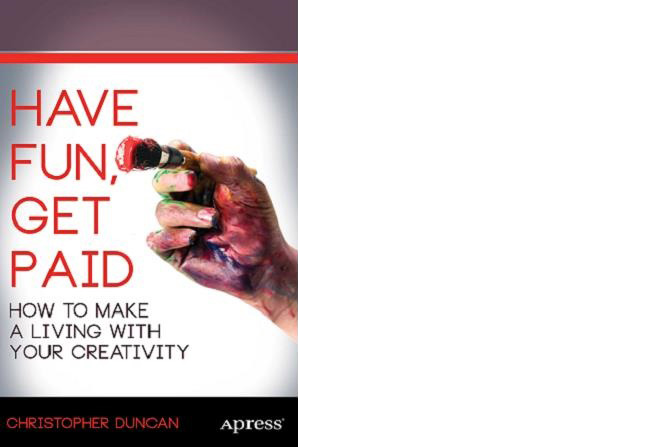Have Fun, Get Paid Excerpts
How to make a living with your creativity
Rejection Is Part of the Game
It doesn’t take a postgraduate degree in clinical psychology to know that rejection can be painful. Very few of us go through life without someone pushing us away, but nowhere is it more common than in the arts.
To create is to expose a very important part of our soul to a crowd of complete strangers, trusting that they’ll understand how vulnerable we are in that moment. Such trust is often misplaced. Mathematically speaking, the larger the audience that you draw, the greater the likelihood that some will criticize your work. When it happens, you’re not going to care much for the experience.
The potential for rejection has always been a part of the artist’s life, but the Internet takes it to new extremes. Above and beyond the sheer number of people who can interact with you is the fact that a significant portion of them will be trolls, those malevolent miscreants who enjoy making fun of others. It matters little that these mean-spirited posts are coming from disembodied voices associated with fake names. It hurts just the same.
Of course, there will be others who simply don’t like your work. Getting panned by a critic is no fun because they’re supposed to be an authority on the matter. Therefore, if they say you suck, your inner demons will raise a glass and heartily suggest that you agree.
In truth, critics reflect not only their own personal taste but a very specific vision of what they feel does and does not qualify as art. While they’re busy judging you based on the ivory tower criteria of the art school they graduated from, thousands of screaming fans are loving what you do. That’s often a loud-enough noise to make demons and dragons run for cover.
These principles apply across the board, from online retailers to brick-and-mortar stores and from the vaunted words of critics to the mass of enthusiastic bodies at your latest performance. There’s no way you can be a creative person without exposing yourself to rejection. However, if you can learn to see it for what it is and take it with a grain of salt, it’ll be much easier to survive the experience with your self-image intact.
